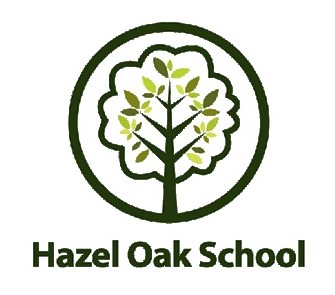Curriculum
Curriculum aims
Our curriculum aims/intends to:
· Provide pupils with the knowledge, attributes and attitudes that will help them to grow into polite, confident and independent adults by threading our school values through the curriculum: These are: Creativity; Growth; Community; Well-being; Respect
· To clearly identify progression 3 curriculum pathways for students at from Key Stage 3 upwards, including access to Further Education, vocational courses and work-related learning.
· Promote a positive attitude towards learning
· To promote students’ spiritual, moral, social, cultural and physical development in order to assist them in becoming thoughtful and responsible citizens.
· Ensure equal access to learning for all pupils, with high expectations for every pupil and appropriate levels of challenge and support
· Have a high academic/vocational/technical ambition for all pupils, regardless of ability
· Provide subject choices that support pupils’ learning and progression, and enable them to work towards achieving their goals
· Develop pupils’ independent learning skills and resilience, to equip them for adulthood
· To ensure that all pupils have the opportunity to understand the national Curriculum at their level of understanding.
· To provide students with access to externally accredited courses at Key Stage 4.
· To ensure that there is an equality of access to all courses.
· To develop independence and life skills through experiences and programmes such as cookery, travel training, residential and work experience.
· To incorporate ‘life skills’ into our curriculum to enable our students to transfer and apply their learning to ‘real-life’ contexts.
· Equip pupils with the knowledge and cultural capital they need to succeed in life so they feel included and can emphasise with others who seem different to them
· Support pupils’ spiritual, moral, social and cultural development.
· Support pupils’ physical development and responsibility for their own health, and enable them to be active and enjoy physical activity
· To ensure quality curriculum content and continuity throughout the school through systematic curriculum planning and monitoring procedures.
· To monitor and assess student progress for the purpose of ensuring high standards of achievement but also to engage students in understanding how they may improve and make improved progress. (Assessment for Learning).
· To incorporate ‘Blooms’ Taxonomy into planning and delivery to enable our students to develop higher order thinking skills.
The Curriculum Model
Our curriculum delivers the national expectation from the DfE but is arranged in a way that best suits our learners. We bespoke our approach according to how pupils learn, in one with their EHCP and this individual needs.
We also offer broader teaching and learning to support life skills and social development which will help pupils in their adult lives beyond school. The sequence of learning is planned progressively from Early Years to Post 16.
National Curriculum topics are rebranded to support pupils’ understanding, deliver learning at a pace that suits the learners, increase engagement and package learning in a meaningful and relevant context (see Appendix A)
Planning is highly structured and influenced by metacognition approaches. For example, pupils experience the topic at the beginning of the term by taking part in an immersion event. This provides pupils with a visualisation and a ‘taster’ of what is to follow. Pupils learn about the topic during the term then apply their knowledge through taking part in a ‘plan, do, review’ approach to a challenge. In the past, students have organised a garden party, produced and released an album and even sold their own brand of Space Chutney…in the shops!
Our curriculum has been appraised by Cliff Faulder (CEO of Diversity Training and consultancy, About-face), who improved the inclusivity aspect of our curriculum. For instance, our original theme around ‘time travel through the Midlands’ was changed to ‘My front room’- the concept being that front rooms changed in aesthetics throughout the decades depending on cultural attitudes and demographics. This is an example of how British values thread through our curriculum- specifically:
· an understanding of how citizens can influence decision-making through the democratic process
· an understanding that the freedom to hold other faiths and beliefs is protected in law
· an acceptance that people having different faiths or beliefs to oneself (or having none) should be accepted and tolerated, and should not be the cause of prejudicial or discriminatory behaviour
· an understanding of the importance of identifying and combatting discrimination
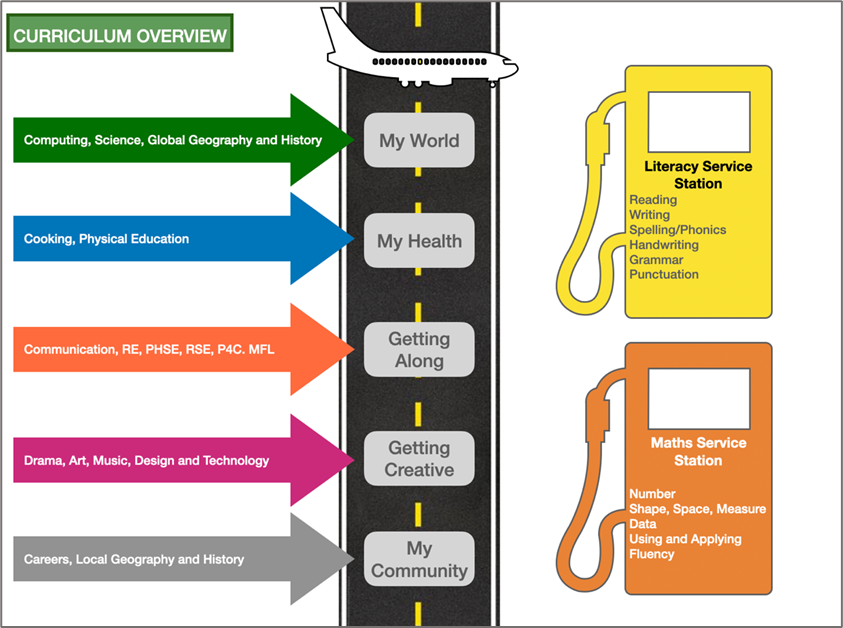
Our Early Years provision is the exception as they follow the EYFS learning themes. However, close links are made with the other classes, particularly Key Stage One, allowing pupils to prepare for transition into a new learning environment. The curriculum delivery in Dewey and Socrates bridges EYFS style delivery into the Key Stage 1 and 2 National Curriculum with a focus around ‘readiness to learn.’ Reading, writing and speaking & listening are key skills directly impacting on social, emotional and communication development. Literacy is therefore taught and assessed through every subject.
Primary and Secondary follow the Challenge based approach to the curriculum. Our unique Challenge Curriculum offers thematic approaches to learning where pupils are provided with opportunities to plan for, organise then implement a final challenge event which links in with their termly theme. The Challenge
curriculum brings the National Curriculum to life, empowers, and motivates students whilst presenting a contextualised and therefore meaningful platform for learning.
SERVICE STATION LESSONS
Sticking with the Curriculum Highway theme, when we go on a long journey, we need regular service station stops for car maintenance (fuel, screen wash, tyre pressure etc) and provisions to keep us moving smoothly. The same applies to the core skills needed when applying independent maths and literacy work. These lessons focus purely on the fundamental literacy and maths skills. Literacy Service station lessons include: Spelling/Phonics; Grammar and Punctuation; Handwriting; Exploring Text Type; Reading
INCREASED LITERACY
Reading, writing and speaking & listening are key skills directly impacting on social, emotional and communication development. Literacy is therefore taught and assessed through every subject. When planning, teaching staff use the below ‘Literacy Regions’ to help them to achieve this.
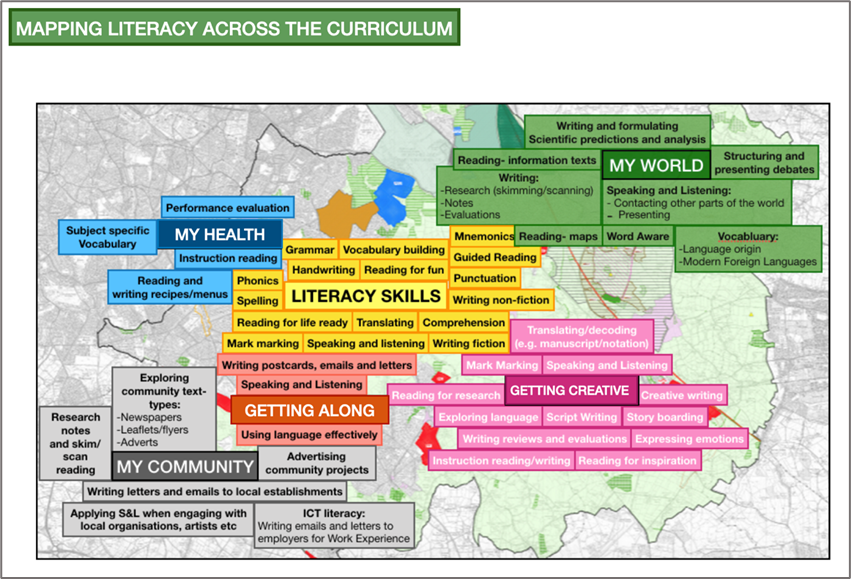
Core Skills: These lessons focus purely on the fundamental literacy and maths skills.
· Literacy Service station lessons include:
· Spelling/Phonics
· Grammar and Punctuation
· Handwriting
· Exploring Text Type
· Reading
Maths is taught using a combination of the following approaches:
· Concrete Pictorial Abstract (CPA) mastery approach
· Problem Solving, Fluency and Reasoning Approach
· Concrete Pictorial Abstract (CPA) mastery approach
Concrete is the “doing” stage where students use concrete objects to model problems.
Pictorial is the “seeing” stage. Here, visual representations of concrete objects are used to model problems. Abstract is the “symbolic” stage, where children use abstract symbols to model problems. Children are introduced to the concept at a symbolic level, using only numbers, notation, and mathematical symbols (for example, +, –, x, /) to indicate addition, multiplication, or division.
Maths is differentiated further using the problem Solving, Fluency and Reasoning.
Fluency involves knowing key mathematical facts and being able to recall them quickly and accurately. Reasoning is the process of applying logical thinking to a situation to derive at the correct problem solving strategy for a given question, and using this method to develop and describe a solution. Students are then offered word or number calculation to solve problems.
A CHALLENGE BASED CURRICULUM
Our unique Challenge Based Curriculum offers thematic approaches to learning where pupils plan for, organise then implement a final challenge event which links in with their termly theme. The Challenge curriculum brings the National Curriculum to life, empowers, and motivates students whilst presenting a contextualised and therefore meaningful platform for learning.
WHOLE-SCHOOL PROGRESSION
Lower School A focus on developing social and independence skills exists at the forefront of learning, thus supporting pupils in being confident and life ready.
Key Stages Overview
Hugo, Plato & Butler-EYFS
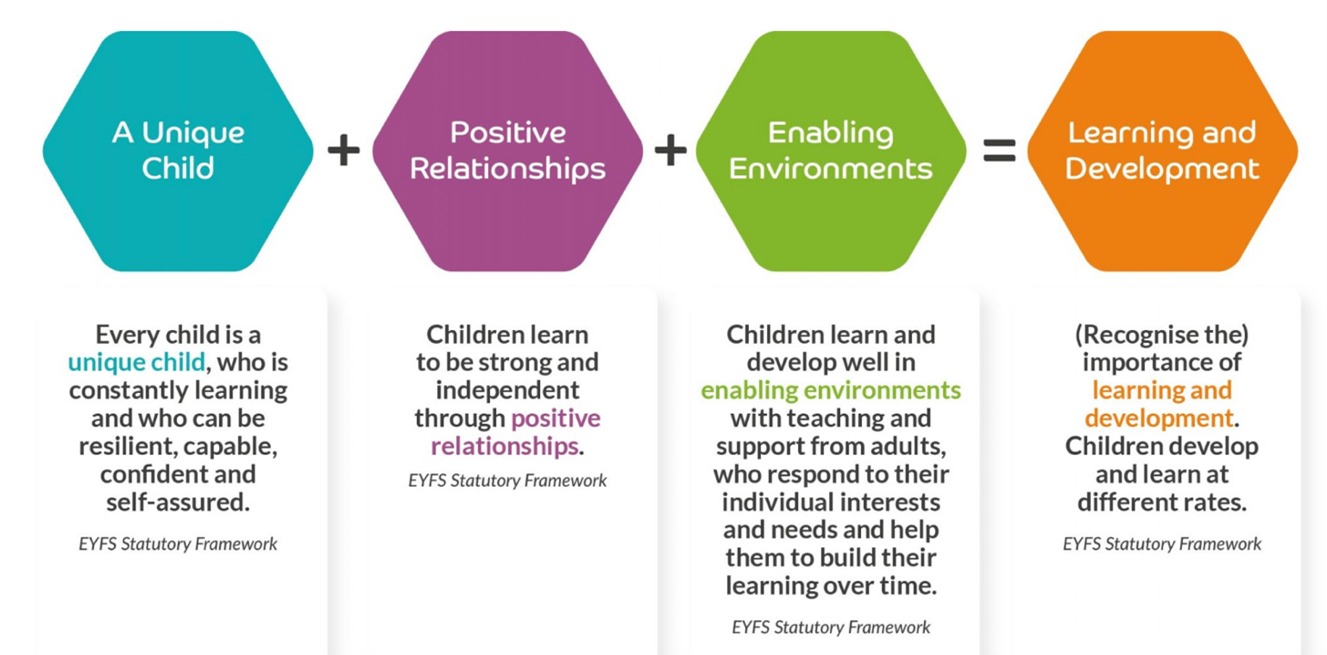
The 4 principles of EYFS
PLAY- We understand at Hazel Oak that children learn best when they are absorbed, interested and active. We understand that active learning involves children, adults, objects, ideas, stimuli and events that aim to engage and involve children for sustained periods of time. We believe that Early Years education should be as practical as possible and therefore have the ethos of ‘learning through play’. Play is essential for children’s development across all areas of the curriculum. Play builds on children’s confidence as they learn to explore, to relate to others and develop relationships, set their own goals and solve problems. Children learn by leading their own play and by taking part in play which is guided by adults.
EYFS areas of learning
The EYFS is split into 7 areas of learning:
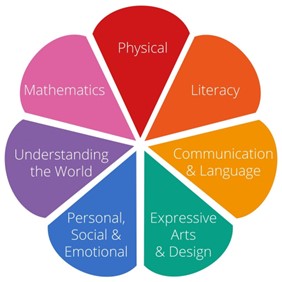
Prime areas
Personal, social and Emotional
Communication and Language
Physical Development
Specific Areas
Literacy
Maths
Understanding the world
Expressive Art and Design
In planning and guiding what children learn, practitioners reflect on the different rates at which children are developing and adjust their practice appropriately. The characteristics of effective teaching and learning describe the behaviours children use in order to learn:
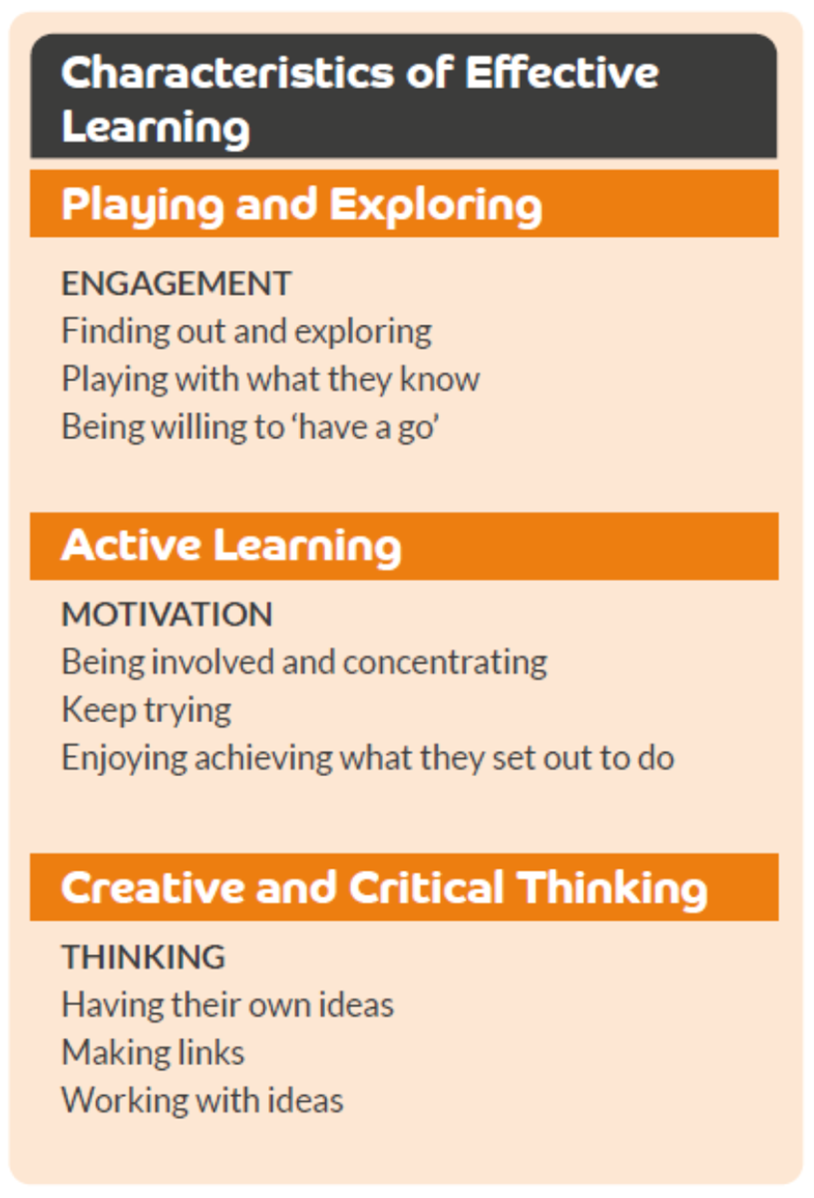
Early Years provision will be skilfully structured, allowing students to access daily social, academic and communication intervention which targets the needs of each individual. Close links will be made with the other classes, particularly Key Stage One, allowing pupils to prepare for transition into a new learning environment. Those classes whom require bridging will be offered EYFS style delivery within a Key Stage 1 and 2 National Curriculum framework, and with a focus around ‘readiness to learn.’
The Primary curriculum:
is a rich balance of national curriculum subjects alongside outdoor learning and extra -curricular opportunities. Crucially, the curriculum model must offer support and challenge at levels appropriate to the needs and interests of each individual and reflects the diversity of individual need. Further, the curriculum will develop enterprise and technology skills and raises awareness of students’ place in the wider world.
Key Stage 3:
students follow a secondary curriculum. The staff team are aware of students’ individual learning and social needs and aim to provide their entitlement in an accessible and personalised way. The curriculum is designed to ensure that all pupils study the whole range of subjects.
All students must be taught English, Maths and Science as core subjects. Class groups will be organised according to teacher assessment and performance data. In addition to the targeted teaching that the groups provide, students will follow a reading scheme and phonics programme in their English groups.
Key Stage 3 follow a Challenge based approach to the curriculum. This is a way of teaching and learning, whereby many areas of the curriculum are connected together and integrated within a theme/topic. Classes are taught in their tutor groups and organised into smaller groups for varied and differentiated activities within the lesson. All students are taught by a range of teachers. Students will have certain subjects in specialist rooms.
Key Stage 4:
All students are entered for entry level 1 to level 2 literacy and maths. GCSE maths is offered for those students who can sit the exam and can achieve a good grade.
Pupils are also taught entry level 1-3 Science modules.
Some students study ASDAN Personal Progress modules. This qualification is made up of units in the following areas: Literacy, Numeracy and IT; Independent Living Skills; Personal Development; Community Participation; Preparation for Work. Lipman are awarded Science modules through ASDAN Personal Progress.
Depending on their pathway, students could study languages, humanities subjects, Design and Technology, Music, Art, Drama and Physical Education.
Sixth Form:
The main aim of Sixth Form is to prepare students for life after Hazel Oak.
Students are based in Solihull College and have access to facilities such as the gym, canteen and the library. We will offer a range of experiential courses at Entry Level, Level 1, Level 2 and GCSE (maths only) to meet the individual needs and capabilities of the students.
